
"A man who decides to serve his nation must die in war, and not murdered by the very citizens that he swore an oath to protect and defend against both internal and external aggression. For him to die in this manner challenges my citizenship," (Prof. Fred Mark Bagonluri, Uncle of Captain Maxwell Mahama)
It was in 2001. Unknown to my parents, I had applied to enrol into the British Army. I was a young lad with a bright future in front of me. At that young age, I knew my calling was to serve others. So, in 2002, I had an invitation to go to barracks in the UK for three days. I was excited and could not wait to break the news to my mother. Soon after I had mentioned this to mum, she came to England. She sat me down and wanted to know why I wanted to serve in the British Army. I said, I wanted to live for others and die with honour and dignity. I had watched with admiration the bodies of the fallen British troops fighting in Iraq at that time being flown back to England. The plane carrying the mortal remains of the fallen soldiers was met by the military at the Air Force Base. The caskets were draped in the British flag of red, white and blue. The line-up and the precision of every move of the soldiers was carefully rehearsed, well-coordinated, and played out to honour their fallen comrades.
Then, during the ensuing week, there was the street parade procession of the fallen. The citizens lined up in the principal streets of the town, as the caskets were driven slowly through the streets. Flowers were thrown over the caskets as the procession drove past, and citizens sobbed as they paid their last respects. They sobbed because the fallen soldiers had died in service to the nation. I was moved by the British way of honouring those who risk their lives for their security. Sadly, some of the soldiers died under horrific circumstances, yet, the British Army ensured that those gruesome footages of the fallen comrades were not littered on social media, because of the distress it would cause to the family and friends of their fallen heroes.
I told my mother that I wanted to serve in the British Army. I wanted to serve humanity, but die in service and in honour for such a cause. My mother was not convinced. She is a true Ghanaian patriot. She had no objection against me serving in the military, but if I was to enrol in the force, then it was to be in the Ghana Army. The long and short of the story is I took a different path and found fulfilment in serving humanity in my own little way in another profession.
However, the recent death of Army Captain Mahama has got me thinking once again, I may have made the right decision after all.
Today, I write in honour of Capt. Maxwell Mahama. I write from my own perspective. There are different possible theories postulated as to what led to the gruesome murder of Capt. Mahama. The following, in my opinion, is a common thread that runs throughout the stories so far narrated
Greed
One of these theories is that the Captain was a threat to the activities of illegal miners. He was a threat to the livelihood of the a few players engaged in "galamsey". To some, his killing was conceived, calculated, carefully planned and executed to the horror of the whole world.
It is sad, but the hypocrisy of the condemnation across the political divide and among many others cannot be overlooked. Some of the very people who are condemning this very act are "murderers" themselves. They steal our monies which are meant to provide the much-needed medicine for Ghanaian citizens, and if they care to buy anything at all, they purchase "fake" medicine, which, in turn, causes the death of many tens of thousands of Ghanaian citizens, most of whom are faceless.
From all the accounts we have heard so far, Capt. Mahama was a fine example of what being a Ghanaian is. Hard working, honourable, decent, incorruptible, selfless, the list goes on. He died at the hands of the very people he sought to protect. I pray the Captain's death will be a turning point for us all to do good on to all manner of persons, especially, for some of our politicians who have murdered faceless folks by their neoteric activities. It must be documented in the annals of the generations yet to be born that the death of Captain Mahama was the cause of a revival in the mindset of Ghanaians, especially, the political elite.
Mob Action
The culture of mob action is gradually becoming acceptable in our societal norms. The impunity with which we kill is fast eroding the values that for many years have been embedded in our culture.
Not long ago, I watched a video of the military that shook the very foundation of my perception about Ghana. It was an interview of a few military personnel. Admittedly, many were angry, but the call for retribution is a call in the wrong direction. The Rule of Law, as espoused in the Constitution, must be applied to all. The right to a fair trial by a court of competent jurisdiction must be the line of travel. The era of "let the blood flow" must be consigned to the museums, alongside the talking drums.
The culture of mob rule is entrenched in our social fibre. I recall during my secondary school days, as soon as the alarm "thief" "thief" was sounded, slaps and belts started flying, and before you had time to say "Jack Robinson" the damage had already be done, and, sometimes, to an innocent person. All you needed was for someone to raise the alarm. If luck was not on your side, the thief would be beaten to pulp.
We must re-orientate our citizens. The radio stations can start with re-education. Civic education has an equally important role to curb this menace. Our religious leaders ought to be at the forefront of this crusade against mob action. I was very upset to read the sad account of Capt. Mahama's death. His life has been waisted, and he died the most horrific death in the country of his birth, sadly, to the very country he had sworn to protect. May we leave a legacy in his honour?
Now, I will briefly talk about the downside of social media. Social media is good source of disseminating information, but it can be toxic. It is in this regard that I entreat every Ghanaian to be a responsible citizen. I am on several different WhatsApp platforms, and was shocked by the number of "shocking" pictures of Captain Mahama being circulated. We are all guilty.
Those who circulated the pictures of Capt. Maxwell on social media might have done so out of an ignorant or ill-conceived motive. Some have justified this by saying that they are circulating this so that the perpetrators are brought to book. Since when did social media become a police post/station. The key to being responsible on social media is simple; before you post anything, ask yourself this question "Would I be happy if this was said or posted about me." Of course, when the evidence is incontrovertible, and the case has been proved by a competent court or authority, then those who were guilty of murder, and for that matter any other heinous crimes, ought to be named and shamed. Social media can be a lethal weapon. If not used responsibly, the negative impact on friends and family, who already carry such a great burden, can be huge. Capt. Maxwell was a father and a husband. He was also a son, brother, friend, and colleague. We must, therefore, be sensitive to the plight of those he has left behind.
The Police
Since when did the military take over the job of the police. Is it not the police that are responsible for protecting civilians? The multi-million-cedi question then is why was the military deployed. Off course, there is enough police personnel in Ghana. I say this advisedly. If we can protect each minister with some police personnel, then the citizens who elected/appointed them to serve their interest must be protected too. How come that 60-year-old Ghana will protect the political elite, and yet, a whole town does not have a single police post. We got it all wrong. I accept that under certain circumstances the military is deployed to support the police. Let us deploy our police on the streets. They must be visible. They must be incorruptible, and they must prevent crime. In the UK where I live, it is common practice to see the police patrolling the streets and cycling in town, even though we complain there are not enough of them to protect us. I just returned from Ghana, and I can report without fear of any contradiction that it is common practice to see a policeman seated under a tree at a bank fast asleep with an AK 47 strapped to his chest. Captain Mahama's death, though avoidable, is a call for a shake-up of our security services, especially, the police force.
I must conclude with this tribute: Captain Maxwell Mahama, your cries became inaudible with each painful blow. As you were pounded with stones and sticks amidst curses and insults, no muscle moved. The pain of the beating hurt you, and like the soldier you were, you muttered not a word. Your life was instantly frozen, your eyes opened momentarily and your mouth slacked. In a flash, the Captain was no more. A beautiful life taken. A family robbed. As though not enough, you were stripped naked in humiliation. Your dignity was taken away, and you were callously torched by a "mother". Your family has been robbed of the most precious thing in life. You died like an armed robber, and yet, you were a soldier. The indigenes of Diaso in the Upper Denkyira District of the Central Region owe a debt they can never fully repay. I am sure they are full of guilt and shame over their actions. Your memory is frozen in time.
I perceive the founding fathers of Ghana are sobbing and saying Capt. Maxwell Mahama's death must not be in vain. Captain Mahama, without doubt, will console our forefathers and say "Our citizenship need not be challenged."
Read Full Story

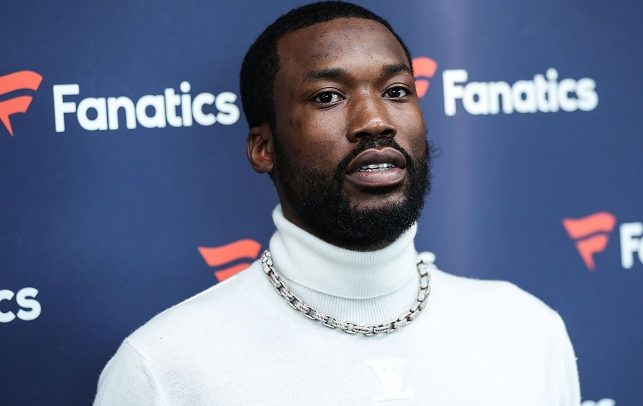
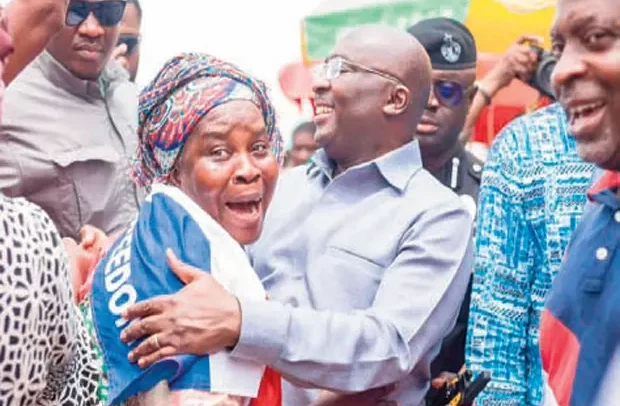

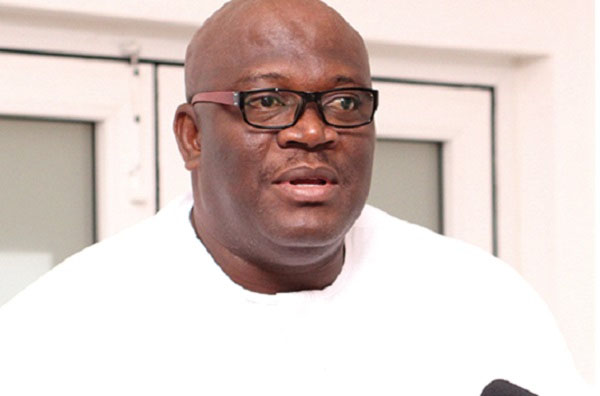

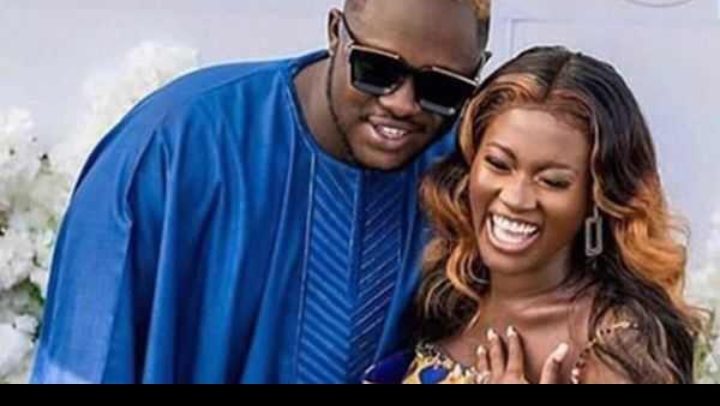











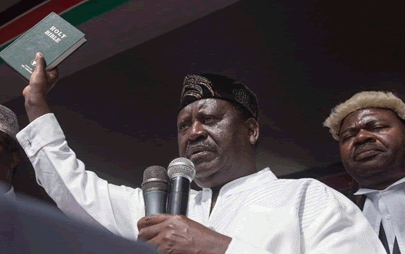





Facebook
Twitter
Pinterest
Instagram
Google+
YouTube
LinkedIn
RSS